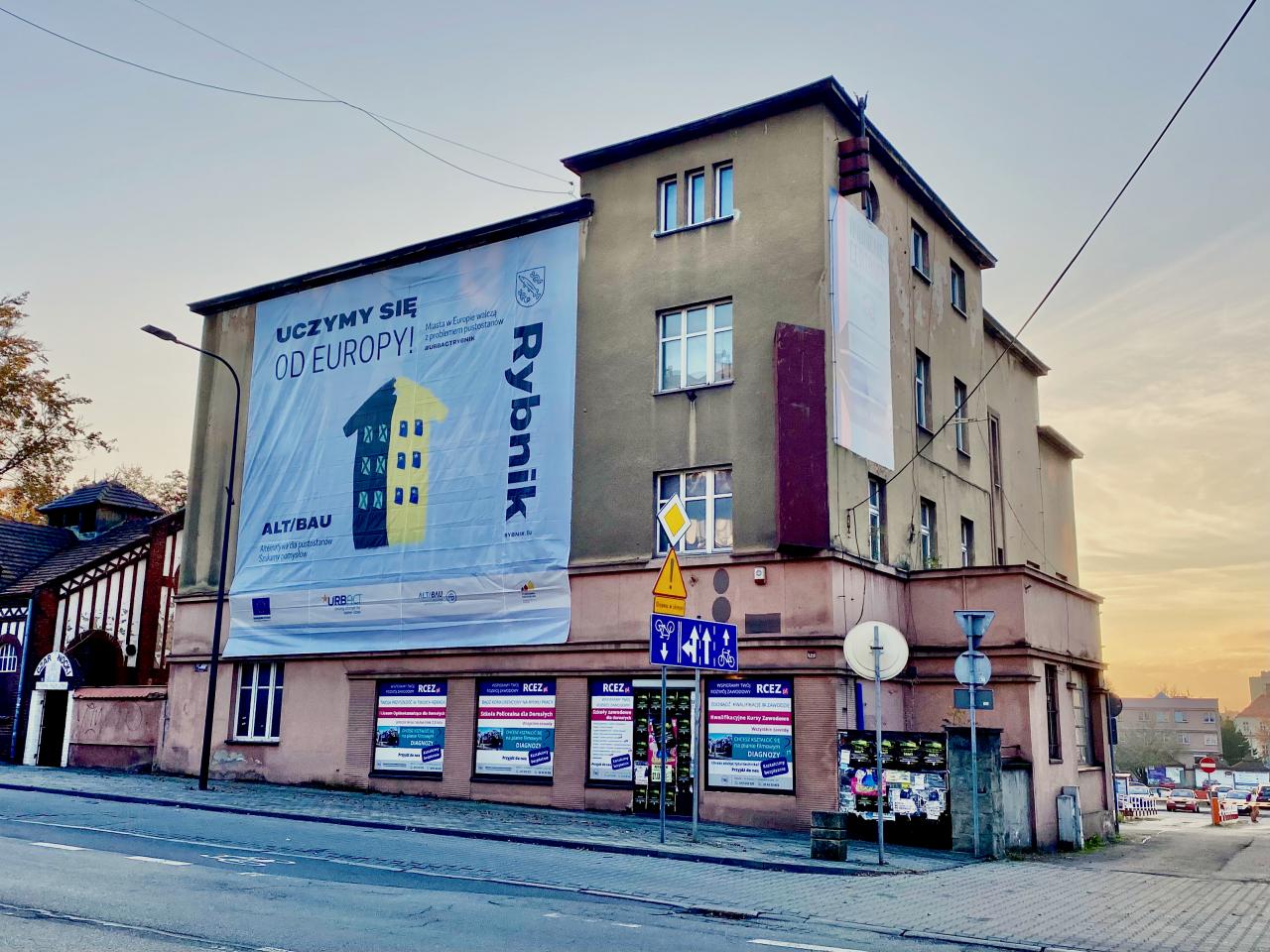
Once upon a time, in the spring afternoon of 2018, I was called by the Deputy Mayor of Rybnik Piotr Masłowski and asked if I’m interested in participating in the URBACT project. Without knowing the details, I enthusiastically agreed, and it started… for good!
What we achieve thanks to "ALT/BAU" goes far beyond the stereotype of European projects and their products. We use the opportunity to "repair" the city in residential field. We have a new, fresh perspective, and when we add to it the german genesis of Good Practice, here: in Upper Silesia we meet a very positive reception of the idea of its transfer to the Rybnik soil. Find out how it went.
The background
We have known for a long time that we have a problem with vacancy in Rybnik and a shortage of apartments [sic!]. An important issue was the selection of tools and finding time for reflection. City administration includes thousands of parallel tasks and in this set it is difficult to focus on a specific problem.
Thanks to "ALT/BAU" it was possible to find the missing time. The setting up of a project team composed of people responsible for the proper operation of the city was the first step towards identifying the true scale of the problem and taking concrete steps towards its mitigation.
The transfer process starts
Can the problems of the german city of Chemnitz - and how they were dealt with - directly translate into Rybnik? Directly? Not, but when we implement a few changes - definitely. The implementation of "ALT/BAU" showed how much we have in common and confirmed that the seven Partner cities constitute a European family which decided to make an attempt to deal with (in fact) similar difficulties.
The project allowed us to establish interesting, interdisciplinary contacts with representatives of the world of science (professors, students) and outstanding specialists from the area of urban issues. Some of the above-mentioned people were directly involved in the project and had a real impact on the much-needed changes in the vacancy issue in Rybnik.
Implementation of the project was not an easy task: members of the project team were involved in the parallel implementation of other, equally important activities. This resulted in the varied intensity of project activities. There were tough moments, but we always found the energy to "start over", tighten up and apply the force to get things going again on the right vector.
ULG meetings also had their ups and downs. Despite our best efforts, we have never been sure whether the stakeholders would respond positively to our invitation. In addition, the global health crisis switched steering knuckle into the online implementation of the project (where it was possible). On the one hand, this additionally delayed the implementation, but on the other hand, it opened up new opportunities: webinars, which became a source of new, very important inspirations and broadened our horizons both in the substantive area and the group of people involved in the project. We went online to achieve goals in the real world.
Complications and challenges
We started off with a bang. The meeting with the representatives of Chemnitz and Vilafranca del Penedès in Rybnik May 2018 was for us a real "kick-off" of the project. Then we understood that "ALT/BAU" is a demanding project, but at the same time we saw the potential hidden in the area we touch.
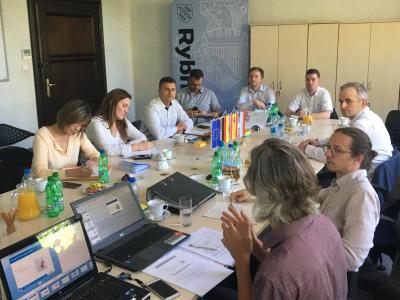
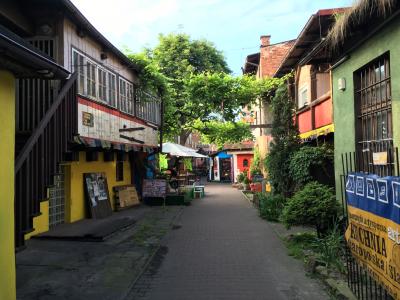
It is not easy to show the city's weaknesses when guests visit us. There was no room for powdering reality here. The guests saw Rybnik as it is - both its advantages and areas that we usually do not praise during similar meetings. After a few months, it turned out that each of the partner cities has its own "Sonnenberg" (Chemnitz, no offense) - an area that at first glance is not attractive, but if you spend some time and energy on it - you can disenchant a bad impression.
The URBACT methodology "imposed" on us some solutions, such as ULG, thanks to which we could discuss the problem of vacancy in Rybnik on a wide forum. We organized the first formal ULG meeting in one of the vacant buildings located on the Rybnik market square. The problem of vacancy was publicized in Rybnik, and the ULG meeting in September 2018 resulted in constant communication with both owners of tenement houses in Rybnik, enthusiasts of the city's history, development companies, real estate agencies and residents. Some of them took part in subsequent ULG meetings.
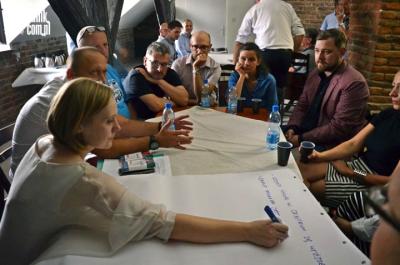
"URBACT would therefore help in financing professionals whose task would be to search for vacancies, their owners and mediate with them. If the owner could not afford to renovate the tenement house, they would encourage him to hand over the building to a new private person."
International meetings in Chemnitz, Constanța, Seraing, Vilafranca del Penedès and Riga allowed us to learn more about the specifics of other cities and the nuances that our approach must be adjusted to local requirements. In the meantime, we spent a lot of energy on crystallizing the process of adapting the Chemnitz Good Practice. It was known from the start that adapting the practice 1:1 was not an option. Thanks to the involvement of professors from “Management” and “Architecture” Departments of the Silesian University of Technology in the first place, we identified the basic problems with project management at the level of Rybnik and we set a path for action in the substantive area of the project. We adjusted our activities by organizing important organizational meetings and introducing changes to the organizational structure of the project, clearly defining the roles of individual team members. All this allowed us to go straight and soon encounter new design perturbations. The subsequent dangerous turns on the winding design road did not cause any misfortune but translated into a change in the directions of cooperation with the scientific community. We have established a new cooperation with professors such as Mrs. Agata Twardoch from Architecture Department of the Silesian University of Technology, a dynamically operating Science Club at the University of Economics and an experienced architect in the person of Mr. Aleksander Krajewski. This combination of experience and new energy resulted in a rapid inventory of vacancy in Rybnik and the establishment of real cooperation with owners of tenement houses affected by the problem as part of a pilot vacancy agency. The experience will allow us the launch of an agency similar to WGS in Chemnitz in the future.
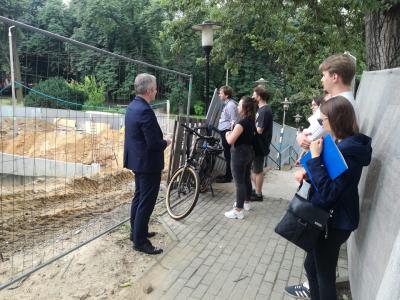
Short break during the vacancy inventory with "AREA" Science Club
"The innovative approach in the reconnstruction of a former residential tenement house will allow for the construction of several levels of finished flats in just a few days!"
The pandemic has slowed down our actions. It brought us online, which translated into the organization of several webinars. One of them became an inspiration to launch activities aimed at launching the Society of Social Housing in Rybnik, which we identify as the "missing link" in the urban ecosystem. All this will certainly translate into real changes in the development of vacant buildings in Rybnik in the future.
The support by URBACT
The use of the URBACT methodology is, in our opinion, the key to the effectiveness of actions taken to reduce the number of vacancies in Rybnik. We don’t need to reinvent the wheel when Good Practice gives us ready-made solutions that require adaptation.
An important aspect resulting from the URBACT patronage is the periodicity and planning of specific actions on the timeline. It was the impulses received from the Lead Expert (Nils Scheffler) and the Lead Partner (Martin Neubert) that constituted an important driving force of the project. Without their input, the project would have stopped in place, around 30% of its advancement. It was thanks to the cooperation with Partner Cities that we felt positive pressure to continue acting and achieving measurable goals. Quiet competition between individual cities is not insignificant in terms of motivation to act.
URBACT opened us to discussions about difficult areas of city functioning. This is a new look at housing problems in Rybnik - constant inspiration to act - tangible Effects. "ALT/BAU" has become an individual motivation for the team members also in the areas of personal development. The adopted methodology helped to develop organizational and communication skills. URBACT helped us get out of the comfort zone - get out of the box.
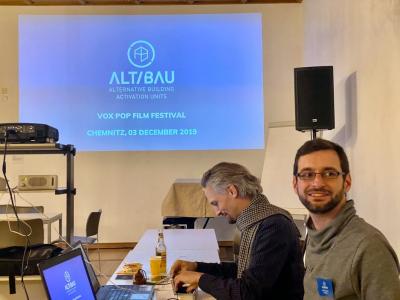
Lead Expert Nils Scheffler and Project Coordinator Martin Neubert
Conclusion
URBACT will stay with Rybnik for years. It launched long-term processes that will have a real impact on the housing situation in Rybnik and (as we believe) will reduce the number of vacancies in the city center, and in the following years. Also in other districts. Rybnik needed "ALT/BAU" and draws heavily on the proven and effective activities of the City of Chemnitz. The project allowed to disenchant the stereotypes at the level of partner cities: thanks to building mutual relations, we will always look at: Riga, Torino, Seraing, Vilafranca del Penedès, Constanța and Chemnitz not only through the prism of names on the map of Europe, but as cities that are very close to us, with whom we share similar problems. Cities linked by a common goal: reducing the number of vacancies.
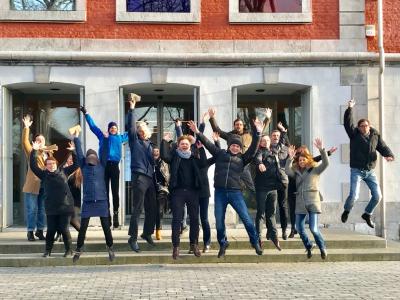

written by Artur Gliwicki
Director of Municipal Housing Agency (ZGM) in Rybnik, Construction Expert, URBACT Rybnik Project Coordinator

